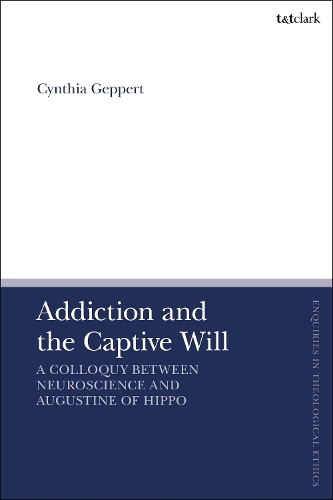
Addiction and the Captive Will: A Colloquy between Neuroscience and Augustine of Hippo
(Hardback)
Available Formats
Publishing Details
Addiction and the Captive Will: A Colloquy between Neuroscience and Augustine of Hippo
By (Author) Professor Cynthia Geppert
Bloomsbury Publishing PLC
T.& T.Clark Ltd
27th June 2024
United Kingdom
Classifications
Professional and Scholarly
Non Fiction
Theology
Medical ethics and professional conduct
Addiction and therapy
Ancient Greek and Roman philosophy
248.8629
Physical Properties
Hardback
280
Width 155mm, Height 234mm, Spine 20mm
500g
Description
Twenty-first century neuroscience has discovered that in some severe cases, addiction may so constrain human freedom that the will is only able to choose to use substances of abuse. At this advanced stage, substance use has become the primary driver of salience, co-opting and subsuming other moral priorities and human rewards. Scholars have investigated Aristotles concept of akrasia as an ancient mirror of this understanding and there have been some preliminary discussions of Augustines concept of the divided will as it bears on addiction. No detailed and comprehensive exploration of the work of Augustine has yet been undertaken as it relates to three contemporary models of addiction: the choice, learning, and brain disease models. Augustines psychological awareness, his mastery of ancient theological and philosophical thinking, and his enormous and enduring influence on both Catholic and Protestant theology, make him an ideal subject for such research. This incisive book argues that Augustines doctrine of the captive will offers a theological parallel of each of these contemporary models of addiction.
Author Bio
Cynthia Geppert is Adjunct Professor of Bioethics at Alden March Bioethics Institute in New Mexico, USA.
